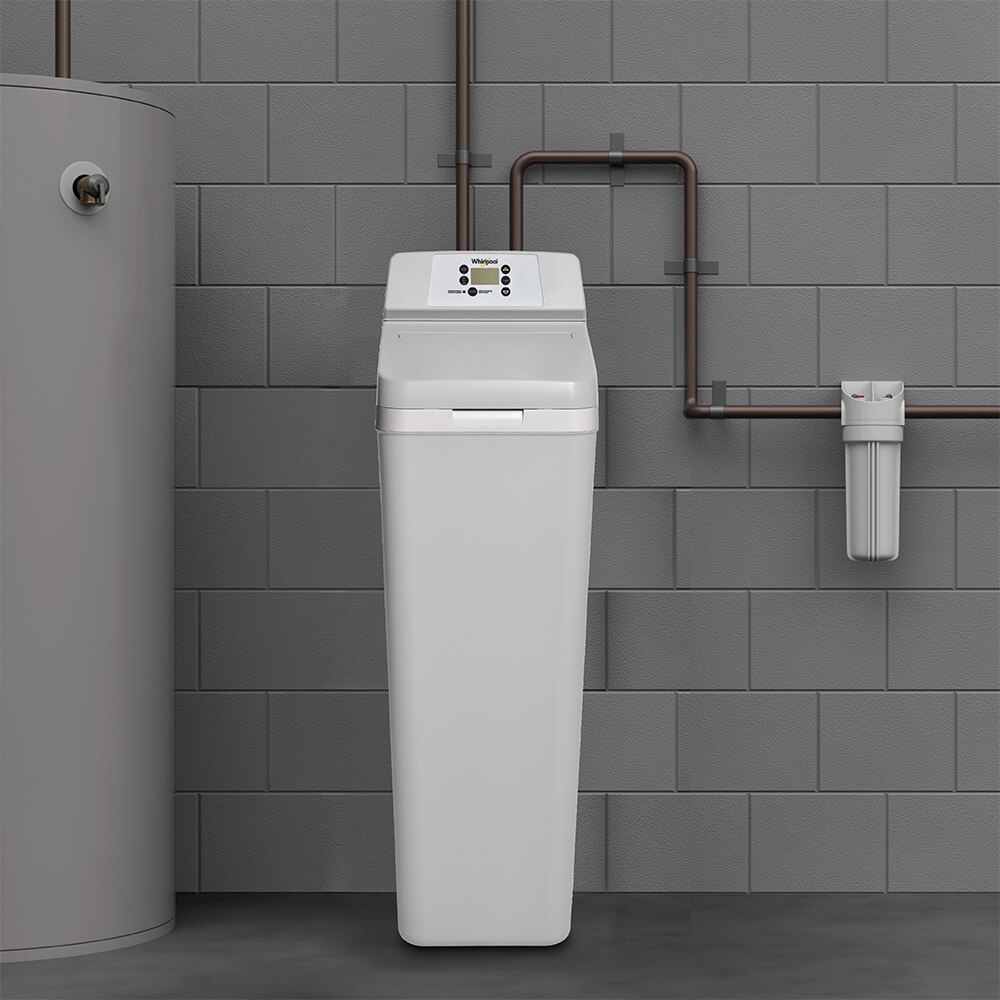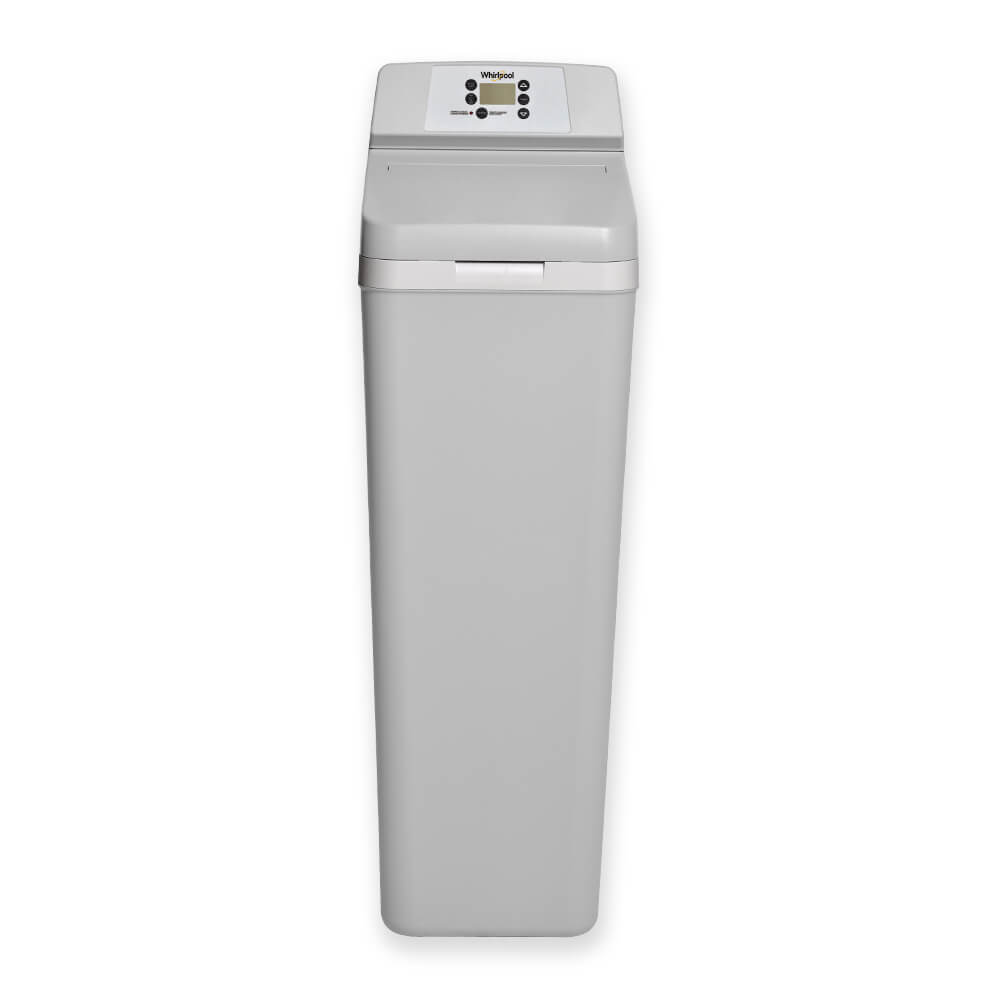Are you tired of dealing with hard water issues at home? You’re not alone.
Hard water can leave your skin feeling dry, your dishes spotted, and your appliances less efficient. Choosing the right water softener can make a world of difference. If you’re caught in the decision-making process between a GE and a Whirlpool water softener, you’re in the right place.
These two industry giants offer reliable solutions, but which one is the perfect fit for your home? We’ll dive into the features, benefits, and potential drawbacks of each brand to help you make an informed decision. By the end, you’ll know exactly which water softener will bring comfort and efficiency back into your daily life. Let’s get started!
Brand Overview
Choosing the right water softener is essential for healthy home water. Two popular brands, GE and Whirlpool, offer reliable solutions. Each has unique features that cater to various needs. Understanding these features helps make an informed decision.
Ge Water Softener Features
GE water softeners are known for their efficiency. They use advanced technology to provide clean water. SmartSoft technology adjusts to water usage patterns. This saves both water and energy. GE models often include easy-to-read digital displays. These displays allow quick monitoring of system status. Some models feature self-cleaning sediment filters. These filters reduce maintenance needs. Their compact design fits in small spaces easily. GE prioritizes user-friendly installation processes.
Whirlpool Water Softener Features
Whirlpool water softeners are recognized for their durability. They often include Demand Initiated Regeneration. This feature ensures water is only softened when needed. Whirlpool models are designed for easy installation. Clear instructions help users set up their systems effortlessly. Many models include salt-saving technology. This feature reduces salt usage by optimizing regeneration cycles. Whirlpool offers systems with large capacity tanks. These tanks handle high water demand efficiently. Their designs are suitable for larger households.
Performance And Efficiency
Choosing the right water softener is crucial for household needs. Performance and efficiency play a key role in this decision. Both GE and Whirlpool offer options that promise effective results. Let’s dive into their performance metrics to help you decide.
Salt Usage
GE water softeners are known for their minimal salt usage. They efficiently use salt to soften water without wastage. Whirlpool models also focus on reducing salt consumption. They have smart sensors that adjust salt usage based on water hardness. This feature ensures that salt use is optimized, saving costs.
Water Usage
GE models are designed to use water efficiently. They ensure that only necessary water is utilized during the softening process. Whirlpool softeners also prioritize water conservation. Their systems are crafted to minimize water use without compromising effectiveness. This makes them a great choice for eco-conscious users.
Regeneration Cycle
GE water softeners have an intelligent regeneration cycle. They regenerate only when needed, preventing unnecessary resource use. Whirlpool models offer a similar efficient regeneration process. They adapt to your water usage patterns, ensuring timely regeneration. This leads to better performance and efficiency over time.
Installation And Maintenance
GE and Whirlpool water softeners offer straightforward installation processes. Regular maintenance ensures optimal performance and extends their lifespan. Simple checks and cleaning keep your system running smoothly.
When choosing between GE and Whirlpool water softeners, it’s not only their efficiency that matters but also their installation and maintenance processes. These tasks can significantly impact your user experience, ensuring your water softener operates smoothly and effectively. Understanding how to install and maintain these systems can save you time, money, and frustration.Installation Process
The installation of a water softener might seem daunting at first, but with a clear guide, it can be straightforward. GE water softeners typically come with comprehensive manuals. You might find it helpful to watch a few online tutorials before starting. Whirlpool models often boast user-friendly designs, making installation a breeze for beginners. However, it’s crucial to ensure you have the necessary tools and parts. Are you ready to tackle this project yourself or will you consider hiring a professional?Routine Maintenance
Maintaining your water softener is key to its longevity. GE softeners usually require regular checks of the salt level and occasional cleaning of the resin tank. Routine inspections can prevent larger issues from developing. Whirlpool models often feature self-cleaning systems that simplify maintenance. Still, it’s important to check the unit’s efficiency periodically. Have you noticed any changes in water quality? A quick inspection might be all that’s needed.Troubleshooting Common Issues
Even the best systems can encounter problems. GE water softeners might occasionally suffer from low water pressure. A quick adjustment of the bypass valve can sometimes resolve this. Whirlpool units may experience salt bridging, where salt forms a hard crust. Breaking this crust can restore proper function. If issues persist, does the idea of consulting customer service seem daunting or comforting? Remember, understanding installation and maintenance can enhance your experience with either GE or Whirlpool water softeners. With these insights, you’re better equipped to make an informed decision.
Credit: www.amazon.com
Cost Analysis
Choosing between a GE and Whirlpool water softener requires a thorough cost analysis. Understanding the financial implications is crucial for long-term satisfaction. Below, we break down the cost components in simple terms.
Initial Purchase Price
GE water softeners are generally more affordable upfront. They offer various models to fit different budgets. Whirlpool softeners may have a slightly higher initial price. Their features and efficiency often justify the cost.
Long-term Costs
Maintenance and operational costs can vary between the two brands. GE models usually require less frequent maintenance. Whirlpool models may have higher efficiency, saving on salt and water use. Consider these factors for long-term financial planning.
Warranty And Support
GE offers reliable warranty options on most models. Their customer support is known for responsiveness. Whirlpool also provides strong warranty packages. Their support network is wide and accessible. Evaluate both to see which aligns with your needs.
User Experience
Choosing between GE and Whirlpool water softeners often hinges on user experience. GE models offer efficient, quiet operation. Whirlpool provides reliable, long-lasting performance. Both brands enhance water quality, catering to diverse needs.
When choosing a water softener, your experience with the product is key. The ease of use, durability, and feedback from other users can all significantly influence your decision. This section will delve into these aspects for both GE and Whirlpool water softeners, helping you make an informed choice.Customer Reviews
Customer reviews can be a goldmine of insights. GE water softeners are often praised for their efficiency. Users appreciate how quickly they notice a change in water quality. However, some customers mention occasional issues with installation. Whirlpool, on the other hand, is frequently highlighted for its reliability. Many users have reported fewer maintenance issues over time. This can be a crucial factor if you prefer a set-it-and-forget-it solution. What do you value more in a water softener—immediate efficiency or long-term reliability?Ease Of Use
Ease of use is essential, especially if you’re not a tech enthusiast. GE water softeners typically feature user-friendly controls and clear instructions. You can easily adjust settings without diving into complex manuals. Whirlpool also excels here, with intuitive digital displays and straightforward programming. For those who dread tech setup, Whirlpool’s simplicity is a definite plus. Which brand’s interface do you think would make your life simpler?Durability
Durability ensures that your investment stands the test of time. GE water softeners have a solid reputation for lasting performance. Users often report several years of trouble-free operation. Meanwhile, Whirlpool units are known for their robust construction. Many users find these models durable, even in demanding conditions. Is longevity a priority for you when purchasing home appliances? When weighing GE against Whirlpool, consider what aligns best with your needs. Do you prioritize ease of use, consistent performance, or durability? Your answers will guide you to the right choice.
Credit: whirlpoolwatersolutions.com
Environmental Impact
When you think about water softeners, their environmental impact might not be the first thing that comes to mind. However, choosing between a GE and Whirlpool water softener can have significant implications for your home’s sustainability. These devices not only affect your water quality but also your carbon footprint. Let’s dive into the eco-friendly features and energy consumption of these two popular brands.
Eco-friendly Features
GE water softeners are designed with efficiency in mind. They use less salt and water compared to older models. This means fewer resources are consumed, reducing environmental strain. Imagine cutting down the number of salt bags you need each year. It’s a small step that contributes to a big picture of sustainability.
Whirlpool also shines in eco-friendly innovation. Their water softeners often come with a demand-initiated regeneration system. This system ensures that the softener only regenerates when necessary, saving water and salt. By preventing unnecessary cycles, you’re not only saving money but helping the planet.
Energy Consumption
Energy consumption is another crucial factor. GE models are known for their energy-saving designs. They operate efficiently, reducing electricity use and lowering your bills. This efficiency is a win-win for your wallet and the environment.
Whirlpool water softeners are engineered to be energy-conscious too. They are often equipped with advanced technology that optimizes power usage. Can you imagine the difference that could make over several years? Less energy consumption means a smaller carbon footprint.
Now, think about your household. Are your appliances contributing positively to the environment? With GE and Whirlpool, you have options that are not just effective but considerate of the planet. Making informed choices about your water softener can be a simple yet profound way to support sustainability. Which features resonate most with your values and lifestyle?

Credit: whirlpoolwatersolutions.com
Frequently Asked Questions
What Is The Difference Between Ge And Whirlpool Water Softeners?
GE models focus on smart features. Whirlpool offers basic, user-friendly options. Both are reliable choices.
Which Water Softener Is More Energy-efficient?
GE water softeners often have energy-saving features. Whirlpool models are also efficient, but less advanced.
How Long Do Ge And Whirlpool Softeners Last?
Both brands typically last 10-15 years. Regular maintenance can extend their lifespan.
Are Ge Or Whirlpool Softeners Easier To Install?
Whirlpool units are usually easier for DIY installation. GE may require professional help for some models.
Do Ge And Whirlpool Offer Warranties On Softeners?
Yes, both brands provide warranties. GE often offers longer coverage than Whirlpool. Check specifics before buying.
Conclusion
Both GE and Whirlpool offer reliable water softeners. Each brand has unique features. GE models provide smart technology and easy maintenance. Whirlpool units are known for efficiency and durability. Choosing depends on personal needs and budget. Consider the size of your household.
Think about the water hardness level in your area. Quality and price matter too. Either choice can enhance your home’s water quality. Make your decision carefully. Better water means better living.





